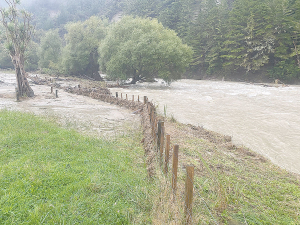Close to $1 million of funding has been allocated by Te Whatu Ora and the Regional Public Service Commission to support the health and wellbeing of Hawke’s Bay communities recovering from Cyclone Gabrielle.
The partnership between the two organisations has resulted in 75 groups being awarded Community Wellbeing and Hauora grants following a call for grant applications late last year.
The funding was earmarked for community health and wellbeing initiatives with successful applicants applying for funds towards activities such as local community events, cultural and spiritual wellness retreats, wellness resources and facilitating weekly meals to impacted communities.
Te Whatu Ora Hawke’s Bay psychologist Frances Oliver says for many living in the region, their wellbeing was deeply shaken.
“It was a traumatic event that continues to impact people, and these opportunities to focus on wellbeing will make life a little brighter, and a little easier,” Oliver says.
Hawke’s Bay Regional Public Service commissioner Karen Bartlett says the grants committee, made up of members from Te Whatu Ora, Te Aka Whai Ora, Department of Internal Affairs and Regional Recovery Agency, had a tough job of assessing who would receive money from the fund.
“From the outset when Te Whatu Ora pledged funding for Community Wellbeing and Hauora Grants, our team’s commitment was to ensure a smooth process so that applying for support wasn’t onerous, and applicants were not waiting weeks to be advised of the outcome,” Bartlett says.
She says there was an overwhelming number of applications, proving how significant the need is.
“It was heart-warming to read the innovative ways groups and communities are wanting to come together, to stay connected and support each other as they recover.
“It was equally pleasing to learn that funding has been spread far and wide across the rohe with applications received from all impacted areas,” Bartlett says.



















